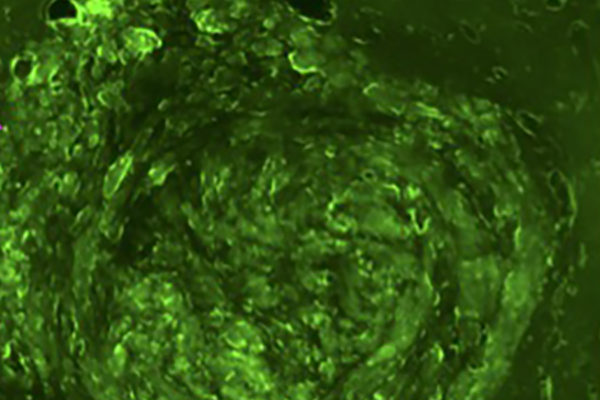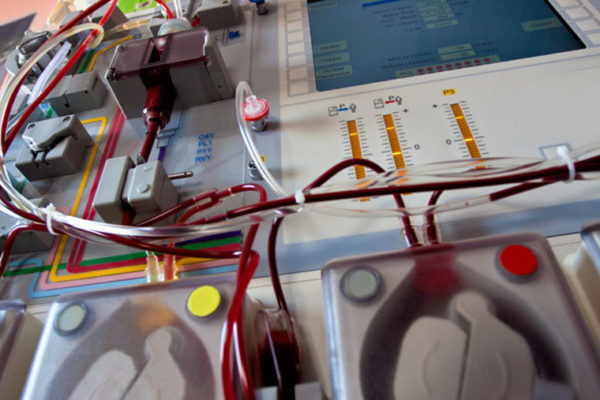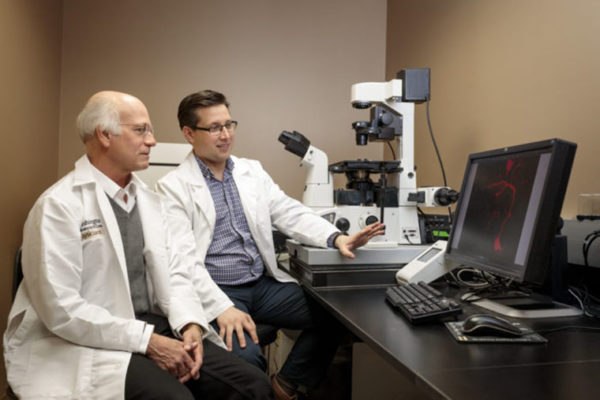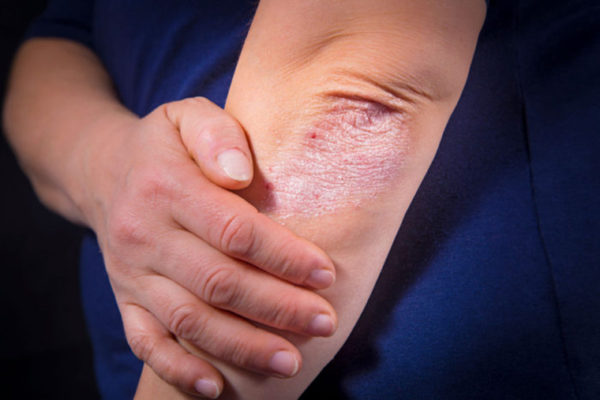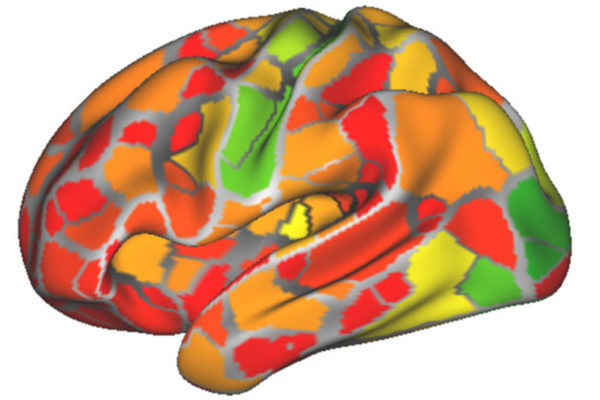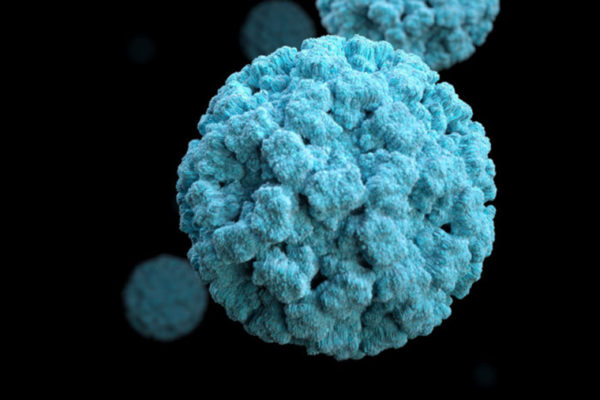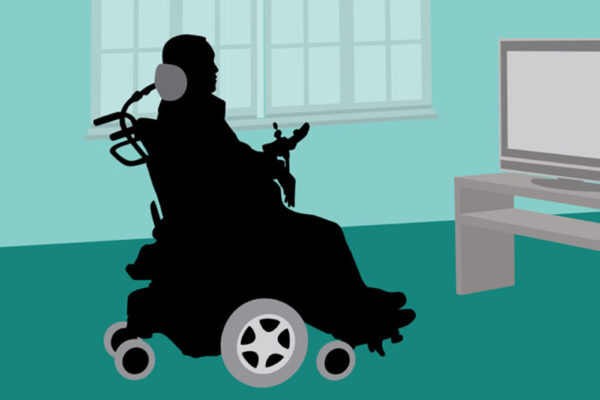Noninvasive brain tumor biopsy on the horizon
Taking a biopsy of a brain tumor is a complicated and invasive surgical process, but a team of researchers at Washington University in St. Louis is developing a way that allows them to detect tumor biomarkers through a simple blood test.
Experimental arthritis drug prevents stem cell transplant complication
An investigational drug in clinical trials for rheumatoid arthritis prevents a common, life-threatening side effect of stem cell transplants, finds new School of Medicine research. Studying mice, the researchers found the drug prevented what’s known as graft-versus-host disease.
Defect in debilitating neurodegenerative disease reversed in mouse nerves
Scientists from the School of Medicine have developed a new drug compound that shows promise as a future treatment for Charcot-Marie-Tooth disease, an inherited, often painful neurodegenerative condition that affects nerves in the hands, arms, feet and legs.
Psoriasis treated with compound derived from immune cells
A compound derived from immune cells treats psoriasis in mice and holds promise for other autoimmune diseases, according to a new study from the School of Medicine.
Brain scans may help diagnose neurological, psychiatric disorders
A new School of Medicine study shows that a kind of brain scan called functional connectivity MRI (fcMRI) – which shows how brain regions interact – can reliably detect fundamental differences in how individual brains are wired.
New clues point to relief for chronic itching
Studying mice, School of Medicine researchers found that a drug can deliver itch relief by targeting particular opioid receptors on neurons in the spinal cord. The drug is being tested for its anti-itch effects in the U.S., but until now scientists haven’t understood how it works.
Text messaging tool may help fight opioid epidemic
A new automated text messaging service may curb opioid abuse and reduce the likelihood of relapse while also decreasing treatment costs, according to researchers at Washington University School of Medicine and Epharmix, a St. Louis-based digital health company.
How highly contagious norovirus infection gets its start
Researchers at the School of Medicine have identified how the highly contagious norovirus infection begins, in mice. Norovirus is a major cause of gastrointestinal illness worldwide.
ALS, rare dementia share genetic link
An international team of researchers led by School of Medicine scientists has identified genetic links between amyotrophic lateral sclerosis (ALS) and frontotemporal dementia, two conditions previously thought to be unrelated.
Battling cancer on two wheels
With a PhD in business, you might not expect Chris Boerner, AB ’93, to be fighting cancer. Yet as head of international markets at Bristol-Myers Squibb, he works to bring life-saving immuno-oncology cancer drugs to international markets. In his free time, Boerner participates in two bike rides that raise more than $1 million annually for cancer research.
Older Stories
